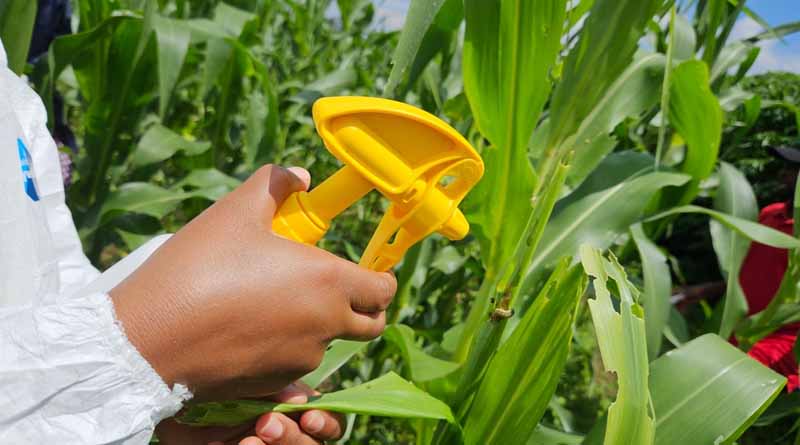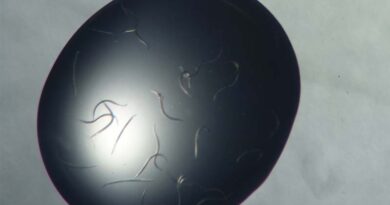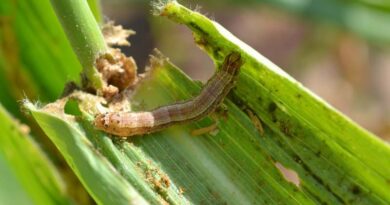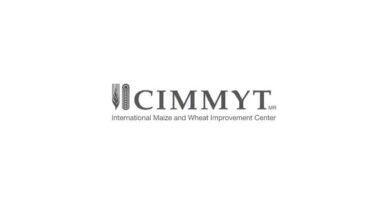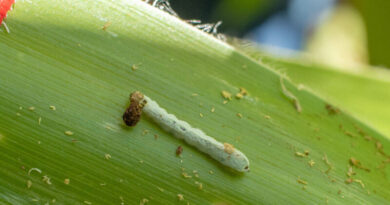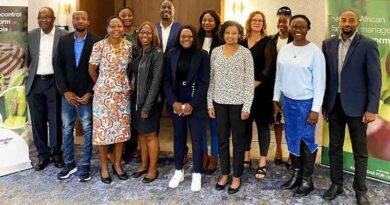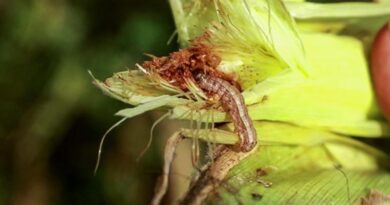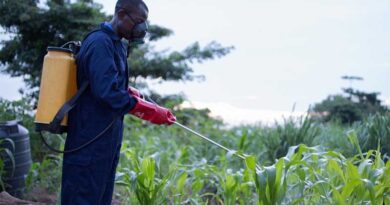Team of Global Experts to Develop Beneficial Nematode-based Biocontrol Solution to Fall Armyworm
22 April 2024, Africa: CABI has joined a team of international experts to develop beneficial nematode-based biocontrol solutions to fight the devastating fall armyworm (Spodoptera frugiperda) in Africa.
Entomopathogenic nematodes are tiny insect-killing worms, also called beneficial nematodes, and have been used for nearly a century as safer-to-use and more environmentally friendly biocontrol agents against insect crop pests.
The fall armyworm is a significant pest of more than 80 crops, but favours maize where it can cut yields by up to 60%. CABI research revealed that fall armyworm costs just 10 of Africa’s maize producing economies between $2.2bn to $5.5bn a year in lost harvests.
Dr Stefan Toepfer, CABI’s invasive species and maize production expert, is sharing his knowledge as part of the project ‘Biological control of the fall armyworm with entomopathogenic nematodes for enhanced food security in Africa.’
Practical, safe, and effective application technique
Dr Toepfer is supporting an expert team in developing a practical, safe, and effective application technique for entomopathogenic nematodes as biological control agents against armyworm caterpillars which threaten livelihoods and food security.
He joins colleagues from the University of Neuchâtel, Switzerland, the International Centre of Insect Physiology and Ecology (icipe) in Kenya, the Kenya-based biocontrol company Dudutech, and the Rwanda Agriculture and Animal Resource Development Board (RAB) as part of a Solution-Oriented Research for Development project (SOR4D).
The teams of the University of Neuchâtel and of icipe will focus on the development and optimization of a gel-based nematode formulation against armyworms. Those teams, together with CABI and Dudutech will then test the new techniques under farming conditions in Kenya and Rwanda.
Moreover, capacity building of young scientists, agricultural extension officers including Plantwise plant doctors, and farmers as well as out-scaling and dissemination of the biocontrol solutions are part of the project.
Dr Toepfer said, “The fall armyworm, a voracious insect pest, that has recently invaded Africa and Asia, and is about to invade Europe. Its caterpillars can feed on a broad spectrum of staple crops, but they are particularly destructive to maize.
“As maize is one of the three major carbohydrate providers to humans, this invasive maize pest has been becoming a threat to food security on these continents. Moreover, the pest management efforts have resulted in unprecedented increases in insecticide applications in maize cultivation.
“The health and environmental hazards posed by these toxins have prompted the call for safer and more sustainable control practices.”
Highly virulent biocontrol agents
He said some entomopathogenic nematodes are highly virulent biocontrol agents against the armyworms, but their application against insect caterpillars aboveground has been challenging.
The project builds on recent successes in developing a novel application method for entomopathogenic nematodes. This involves the formulation of entomopathogenic nematodes in biodegradable agents, such as gels, and using them against foliar pests such as the fall armyworm.
Progress had already been made by then PhD student Patrick Fallet, who was supervised by Professor Ted Turlings, from the University of Neuchâtel, and Dr Toepfer, in collaboration with RAB.
Dr Fallet developed novel gel formulations that successfully protect the beneficial nematode biocontrol agents from drought and sun – easing their application and success in controlling the larvae of the fall armyworm pest.
Professor Turlings said, “We ultimately aim at providing farmers will pest management tools that can reduce the reliance on pesticides in fighting this invasive insect pest. If properly applied, entomopathogenic nematodes can be as effective as standard insecticides. Like pesticides, the nematodes will have to be applied several times during the maize growing season.”
Dr Toepfer added that his is particularly important in regions with overlapping fall armyworm populations that may repeatedly re-infest treated fields. For example, in Rwanda, maize is grown all year round, allowing for the endless multiplication of armyworms.
Linked to the CABI-led PlantwisePlus programme
The project, which was launched in Kenya, is funded by the Swiss National Science Foundation (SNSF) and the Swiss Development Cooperation (SDC) under its funding scheme of Solution-Oriented Research for Development (SOR4D).
The work is linked to the CABI-led PlantwisePlus programme which encourages smallholder farmers to make greater use of safer biological control agents to fight crop pests as part of an Integrated Pest Management (IPM) plan.
It is also connected to biocontrol work being conducted by CABI and the University of Neuchatel together with the Rwanda Agriculture and Development Resources Board for invasive species management.
Also Read: UPL receives ‘Well-Known Trademark’ by the Indian Trademark Registry
(For Latest Agriculture News & Updates, follow Krishak Jagat on Google News)

